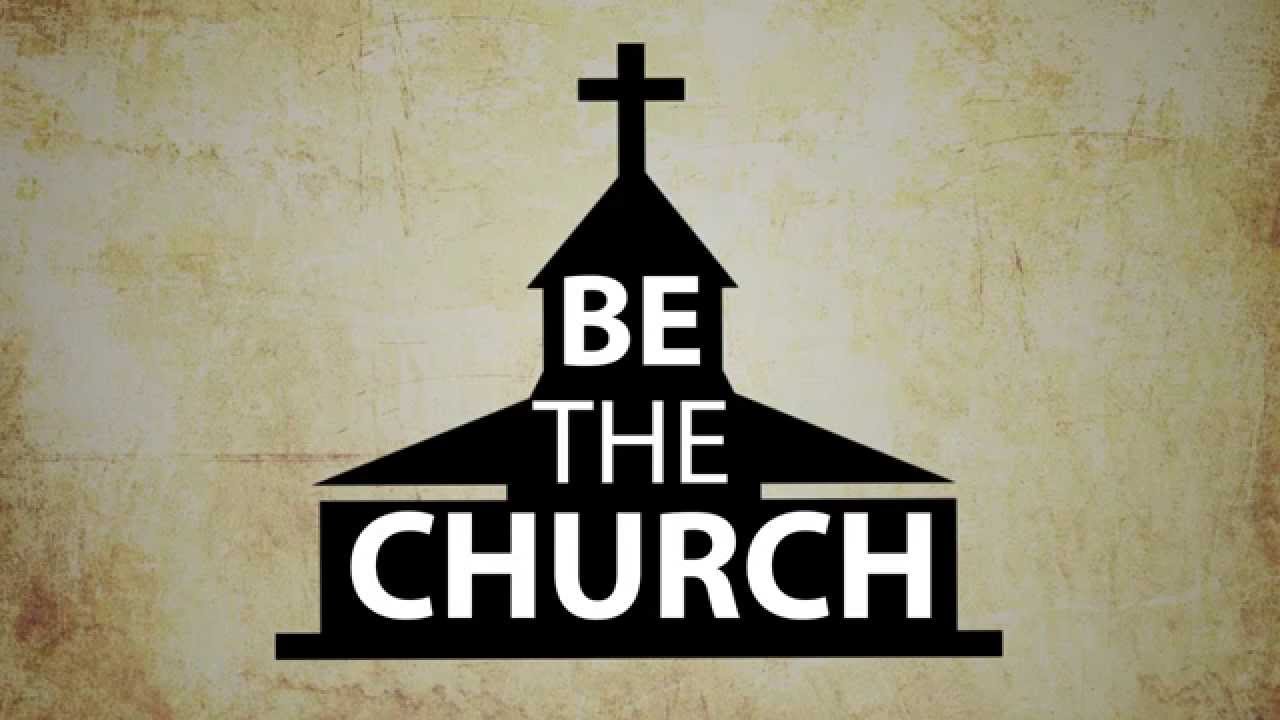The following is a statement that was prepared several months ago on behalf of the Elders of Damascus Road Church. It was initially made available to our church privately. With the upcoming election, we feel it prudent to make the statement publicly in all forms available to us. Through the internet, television, and radios, our communities are being inundated with confusing arguments about Referendum 74. Many of these emotional pleas are coming from “religious” individuals voicing positions in conflict with Biblical truth. Within this confusing political and spiritual environment, our hope is to bring some clarity to the real issues at hand.
That being said, this statement is by no means a comprehensive treatment of every issue related to this piece legislation. Our statement is simply one way of distinguishing ourselves as Christians in, not of, culture; of declaring our allegiance to our Lord Jesus; and of voicing our commitment to the authority of His Word. We would encourage everyone to do their homework with regards to what Referendum 74 is and what it means to REJECT or APPROVE it.
A Statement About So-Called Same Sex Marriage
The battle over the definition of marriage has been waged in our state for some time. In 2007, the Washington State Legislature created limited domestic partnerships. In 2009, Washington expanded domestic partnerships to include “everything-but-marriage”, providing those legal partnerships all of the rights and benefits given to heterosexual married couples. The war waged on silently. In time, the proponents of so-called same-sex marriage revealed that legal rights and benefits were not the true target of their attack. They wanted to redefine marriage for everyone. Their efforts took a step forward on April 2011, when Catholic Governor Christine Gregoire signed a law treating out-of-state so-called same-sex marriages as domestic partnerships in the State of Washington. Most recently, a bill to formally legalize so-called same-sex marriage passed the Legislature and was signed by Governor Gregoire on February 13, 2012. Within hours of signing the bill, a referendum was filed aimed at reversing the legislation. So called same-sex marriages were scheduled to be legalized on June 7, 2012. Opponents to the bill, however, gathered enough signatures to force a voter referendum on the legislation. Now, the legislation will only come into force following a November ballot, if it is upheld by a public vote.
Recently, President Barak Obama, a self-identified “Christian”, publicly voiced his support for so-called same-sex marriage. His controversial statement has not only brought more chaos into the world of politics, it has also generated more confusion into what exactly the church believes or what the Bible says. Without question, this issue is socially divisive. Strong opinions and opponents on both sides have already proven provocative and passionate enough to divide communities, organizations, and families. For the most part, pastors wisely abstain from commenting on every social issue or position that government takes. This is not because pastors lack opinions, but because, as Christians, we are commanded to honor those who God has appointed to lead us (1 Peter 2.13-14).
There are times, however, when governmental institutions and leaders overstep their authority. It is at those times that the church, identified as the pillar of truth (1Timothy 3.15), is called to uphold the supremacy God’s Word with courage and boldness. Relative to so-called same-sex marriage, what is really being challenged here is the authority of God’s Word to define what is right and wrong in the world. With an increasing number of “Christian” politicians, evangelical leaders, and even entire denominations utterly rejecting the authority of Scripture—the need could not be any more urgent. Contrary to the beliefs of some, this is not about legislating morality, though it might be argued that is exactly what the proponents of so-called same-sex marriage are attempting to do. Essentially, this is about fulfilling our Biblical responsibility to glorify God in all that we think, say, and do (1Corinthains 10.31), and to steward all that we have including our vote to align our culture with God’s Kingdom.
WHAT IS marriage? (A Simple Biblical Def.)
To begin, the Bible teaches that marriage is a covenant-relationship between a man and a woman, designed and purposed by God, to glorify Him by displaying His covenant relationship with His people (Genesis 2.18-25, Matthew 19.3-6, Ephesians 5.32). Marriage, therefore, has some several specific characteristics:
Marriage as Complement
God establishes His design for marriage in Genesis. Genesis 1.1 In the beginning God created the heavens and the earth… Genesis 1.26 Then God said, Let Us make man in Our image, according to Our likeness… Genesis 2.18 Then the LORD God said, It is not good for the man to be alone; I will make him a helper, who is suitable, adapted and complementary for him. Then God draws up the form of relationship between these two created beings (male and female):
So the LORD God caused a deep sleep to fall upon the man, and he slept. Then He took one of his ribs and closed up the flesh at that place. And the LORD God fashioned into a woman the rib which He had taken from the man and brought her to the man. And the man said, “This is now bone of my bones and flesh of my flesh. She shall be called Woman, because she was taken out of Man.” For this cause a man shall leave his father and his mother, and shall cleave to his wife and they shall become one flesh (Genesis 2.21– 24).
God designed marriage as a way of teaching us about Himself and His love, not something to just make us complete. In the creation of the woman for man, we see God providing the perfect complement to exist in unity. This mirrors the relationship of the persons of the Trinity (Father, Son, and Holy Spirit), the very nature of God. Marriage is presented to us as an earthly image of who our God is.
Marriage as Co-Workers
After the creation of man and woman, God gave them the cultural mandate: Be fruitful and multiply and fill the earth and subdue it (Genesis 1.28). Marriage not only has a definition, but it also has a mission. This mandate has a host of implications to how Christians engage with culture, but it begins with the simple assertion that man and woman together are to be fruitful and multiply. The very act of subduing the earth and culture-bearing is built on the foundation of reproducing humanity (making babies). God echoes this command to Noah and his sons after the destruction of the earth by flood (Genesis 9.7). The miracle of birth in marriage is a both a gift from God, as well as a faithful fulfillment of His divine plan.
Marriage as Covenant
Jesus reinforced the idea that marriage is a covenant relationship when the Pharisees tried to trap Him with the question of whether or not it was lawful for a man to divorce his wife for “any cause at all”. Jesus answered:
Have you not read, that He who created them from the beginning MADE THEM MALE AND FEMALE, and said, FOR THIS CAUSE A MAN SHALL LEAVE HIS FATHER AND MOTHER, AND SHALL CLEAVE TO HIS WIFE; AND THE TWO SHALL BECOME ONE FLESH? Consequently they are no longer two, but one flesh. What therefore God has joined together, let no man separate (Matthew 19.4–6).
In covenant you become identified with the other individual and there is a supernatural commingling of two lives. The unity of the flesh (two becoming one flesh) is a mystery but it is an illustration of the way Christ & the church are one (Ephesians 5.32). This unifying is a gift to the individuals involved, but as a covenant, it is a tangible example of a spiritual event. We are unified to one another through our common bond in Christ (John 17.22-23). Marriage is about Jesus’ and His relationship with his church. Since marriage is about Jesus, it makes sense that just as men opposed, abused, and killed Jesus, men want to oppose, abuse, and kill marriage.
According to Scripture, Marriage is a God-sealed Covenant; Jesus teaches that God Himself joins the husband and the wife together. The verb joined together speaks of a definite completed action (in context in the past) and active voice indicates He (God) actually does this. Marriage does not exist outside of God’s unifying covenant.
Why does this matter?
So called same-sex marriage undermines the Biblical definition of marriage. In doing that, it takes what God has purposely designed to display his character and nature and perverts it. In a very tangible way, it is an attempt to redefine the very nature of God himself:
- It distorts the complementary relationship of the Trinity, by denying the specific roles and characteristics of the sexes.
- It devalues the purpose of marriage, by denying the created order necessary for procreation.
- It denies the covenant making God, by sidestepping His created order to create a man-made institution, giving created beings the authority to unite two people into one flesh.
Though so-called same-sex marriage supporters proclaim that adopting homosexual union does not affect heterosexual union, nothing could be further from the truth. As explained, this is no longer an issue about “rights”. All rights and benefits have been afforded same-sex couples. This is about changing something much more important for everyone. While this new law may not change the legislative standing of heterosexual marriage, without question, it changes the spiritual nature of marriage, in that it detaches the definition from the God who created and sustains the institution. Definitions matter; and while marriage may be a twisted word already, the approval of so-called “same-sex marriage” entirely neuters the word of any meaning moving forward.
The last and most important implication of this legislation is that it puts ALL OF US, whether we are the people who engage in unnatural relations (Romans 1.26-27) or simply those who stand by and accept it, into a place of sin. Christians often want to turn their backs to and wash their hands of what others do; but in describing the downfall of the depraved mind, Paul groups those who approve sin into the same category as those who carry it out (Romans 1.32).
As Christians, we need to be a people who are about the support and pursuit of God’s glory. This includes calling sin what God calls sin, in order to give an accurate picture of who He is and to turn people away from their sinful desires to life in Jesus Christ. This legislation is a detriment to both of these goals.
What am I to do about all of this?
1. What is the first thing I should do? Pray. This is an issue of repentance.
First, we have to examine our hearts and ask God to reveal any sinful thoughts or feelings we may have toward people or couples who are homosexual. This needs to be confessed as sinful and repented of. God is not honored in our defense of Biblical marriage if we harbor hatred and judgment those promoting same-sex marriage. Acting, or even thinking, you are “better” than those who participate in this lifestyle is to deny your own need for the gospel. You are both unloving AND prideful. This is the very attitude that Jesus condemned the Pharisees for. We must seek to view everyone in light of the Gospel, understanding that we are all deserving of death and all in need of God’s grace and salvation.
2. What is the second thing I should do? Read your Bible. This is an issue of maturity.
The second thing you should do is read your Bible. First, we need to understand the all sin outside of the covenant of marriage is sinful, whether that be pre-marital sex, adultery, homosexuality, etc. Second, and more importantly, we need to understand the biblical nature of sin all together. All too often, zealous Christians make the mistake of arguing against homosexuality using Old Testaments books such as Leviticus or New Testaments books like Romans. These are valuable passages, but only so far as they are understood in the context of their history and the whole story. What every Christian needs to do is understand the entire storyline of Scripture including Creation by Jesus, the Fall of Creation, its Recreation in Jesus, and the final Restoration of all things with Jesus. Seeing homosexuality through this lens will protect us from wrongly valuing some sins as worse than others. This perspective should remind us how sin perverts God’s design for everything; not only in our sexuality, but in our language, our parenting, our finances, , our diets, etc. Understanding how our relationship with God has been broken will help us to understand how our relationships with one another, specifically marriage, are restored in Christ. We do this by studying Jesus relationship with the church—the gospel.
3. Should I vote if given the opportunity? Yes. This is an issue of stewardship.
We believe that every Christian should vote at every opportunity. Living in America, we have an unparalleled opportunity to help shape our culture. As Christians, we believe it is our Biblical responsibly to participate in and work to reform culture. Politics is part of culture and, like all other parts (i.e. arts, education, etc.) we must learn to reject, receive, or reform its different aspects as the Spirit leads by His Word. Moreover, as a citizen, our money is already being used to shape culture whether we participate in it or not. We believe it is more than foolish to abstain; in addition to failing our cultural mandate, it is in fact sinfully poor stewardship. Through our voice and our vote, we have the responsibility to guide how our money is used. And while we may not decisively control how it is spent with our vote, it is one of the clearest means we are afforded.
4. Should I actively campaign? Maybe. This is an issue of conscience.
How much you choose to participate in this part of culture is an issue of conscience. Other than to avoid being enslaved by anything, there is no clear guide in Scripture as to how far our responsibility goes. Some will naturally feel passionate, others will not. Be careful not to look down on someone that that does not feel the same as you do. However you might feel, all of us must always remember that our identity is first as a citizen of the Kingdom of heaven. Moreover, whatever level of participation we might choose to engage in, we must always remember that an internal problem like sin will never be ultimately resolved by something external like legislation.
5. Should I teach my children? Absolutely. This is an issue of obedience.
Deuteronomy 6 teaches that the parents of children, not the church, are primarily responsible for teaching their children about God and His Word. This is supposed to be an intentional proactive commitment not a hasty reactive response. Many have failed in their God-given responsibility to pastor their homes and, unwittingly, abdicated that role to other people and institutions like schools. As the push for the legalization of same-sex marriage increases, our children will be exposed more and more to the thinking and teaching that homosexuality and same-sex marriage is normal. Kids who go to public or even private schools will eventually have a teacher, principal or parent of a friend who is involved in either a homosexual relationship or who is married to someone of the same sex. Kids will be taught, if they aren’t already, that homosexuality is completely normal and that so called same sex marriage should be celebrated as a progressive advancement in our society. This is not what Scripture teaches. In order to equip our children to deal with what is wrong with the world’s view of sexuality and marriage, we need to teach them what is right about God’s design for sexuality in marriage. Teaching children the things of God should not occur only when the world’s lies take center stage. They must be trained to know God’s truth so that they are not deceived by the world’s lies.
6. Should I engage in conversation with others? Sometimes. This is an issue of opportunity.
We should engage in these kinds of conversations, but not necessarily go looking for them. Like Jesus, we need not engage with every single person who wants to engage with us. We must learn to discern when and how to respond so that we say the right thing, the right time, in the right way.
13 Now who is there to harm you if you are zealous for what is good? 14 But even if you should suffer for righteousness’ sake, you will be blessed. Have no fear of them, nor be troubled, 15 but in your hearts honor Christ the Lord as holy, always being prepared to make a defense to anyone who asks you for a reason for the hope that is in you; yet do it with gentleness and respect, 16 having a good conscience, so that, when you are slandered, those who revile your good behavior in Christ may be put to shame. 17 For it is better to suffer for doing good, if that should be God’s will, than for doing evil. 1Peter 3.3-15
7. How should I engage in conversation with others? With Truth and Compassion. This is an issue of prayer.
Let us not forget that it is not the convincing nature of your arguments that will cause someone to turn from their sin. We are to speak with wisdom but trust that the acceptance of truth is not found in the persuasiveness of our arguments. That power and privilege rests with the Spirit of God. Therefore, the best thing we can do is pray for our leaders, our communities, our friends, and even our so-called enemies.
22 So flee youthful passions and pursue righteousness, faith, love, and peace, along with those who call on the Lord from a pure heart. 23 Have nothing to do with foolish, ignorant controversies; you know that they breed quarrels. 24 And the Lord’s servant must not be quarrelsome but kind to everyone, able to teach, patiently enduring evil, 25 correcting his opponents with gentleness. God may perhaps grant them repentance leading to a knowledge of the truth, 26 and they may come to their senses and escape from the snare of the devil, after being captured by him to do his will. 2Timothy 2.22-26
Some other helpful resources and statements are available at the following links:
How I wish the Homosexuality Debate would go
Five Reasons why Christians should oppose gay marriage
President Obama, Same-Sex Marriage, and the future evangelical response




